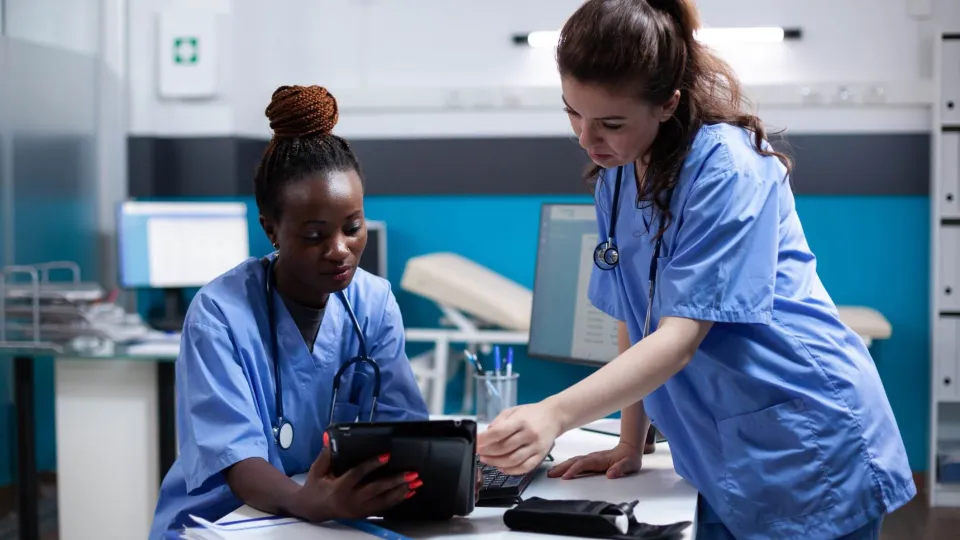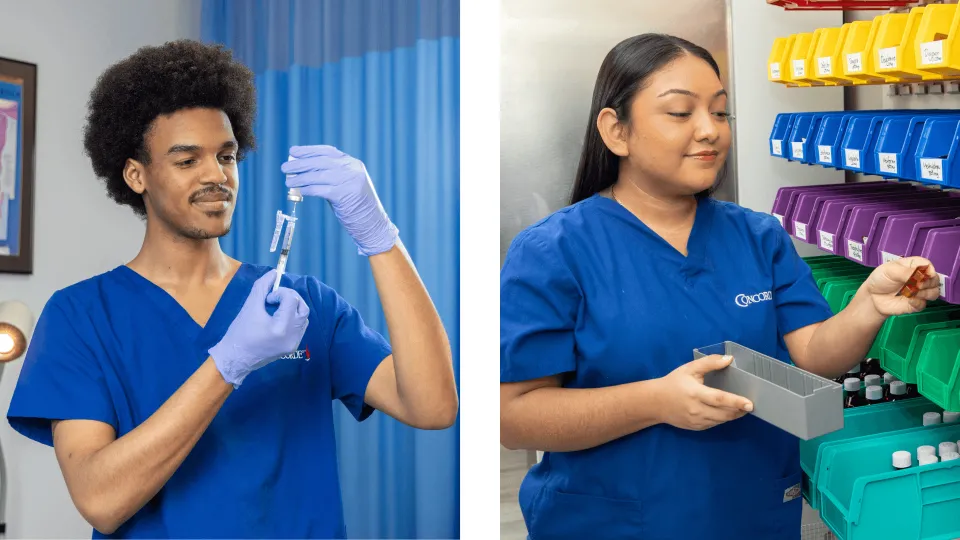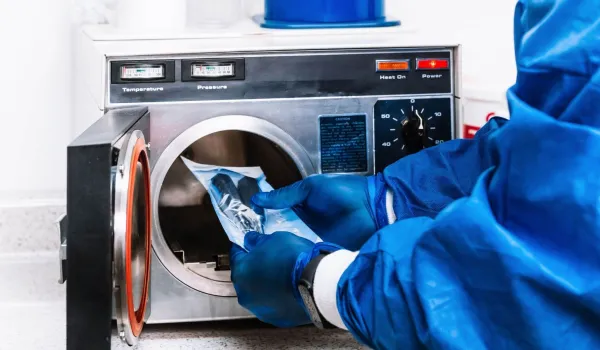
Part of Concorde's mission is to train the next generation of health care professionals to meet the growing demand of our nation's needs.
Baby boomers, moving more of patient care to digital portals and the need for doctors to spend more time with patients and less performing routine administrative and clinical duties, has led the Bureau of Labor Statistics to project a 23 percent increased need for medical assistants over the next eight years.
What does an entry-level medical assistant do?
In entry-level positions, said Shalon Bess-Orr, Medical Assistant/Medical Office Administration Program Director from our Concorde-Miramar campus, employers are looking for "qualified trained Medical Assistants (MA) with both front and back-office experience."
"With the recent transition of going paperless, a medical assistant should be proficient in navigating through an Electronic Health Record, as this is how the majority of documentation takes place," she said.
Medical Assistants / Medical Office Assistants should have excellent communication skills, extensive knowledge of medical terminology, be OSHA and HIPAA compliant, CPR trained and also computer literate. Having a basic understanding of ICD-9/10 and CPT Coding can make the Medical Assistant marketable in all aspects of the office.
In addition to technical skills, Concorde-Dallas Instructors Vida Shepard and Twanda Jacobs also stress the importance of strong interpersonal skills and a can-do attitude. "It's important to prepare a patient for examination by having good listening skills. Have a pleasant personality and be eager to learn," said Sheppard.
"Being proactive can go a long way," Shepard said. "Don't wait around for something to do or a patient who needs attention. See a need and fill it - whether that's filing, filling the copy machine with paper, cleaning an examination room, checking on supplies or straightening the waiting room."
Professional Advancement Available for Medical Assistants
Medical Assisting is not just a static job, It's a career with many opportunities in which to specialize and find a niche. Finding the right medical office administration schools and courses must be researched.
The most common kind of medical assistant certification is becoming a certified medical assistant (CMA). But, according to Bess-Orr, graduates of a medical assisting training program can also sit for the exam to become a:
- Registered Medical Assistant (RMA)
- Certified Phlebotomist
- Certified EKG Technician
- Basic X-ray Machine Operator (BMO)
- Certified Medical Assistants can also opt to take the Certified Nursing Assistant Exam (CNA)
Additionally, Sheppard and Jacobs highlight specific niche areas of work that open numerous possibilities. Intravenous certification allows advancement in hospitals and surgery centers, while a phlebotomy certification might open doors to work in a stand-alone lab or possibly earn more in an office setting. Hospital and outpatient centers typically employ EKG technicians.
The Learning Doesn't Stop Once You Earn a Degree
"Due to the Meaningful Use Act in health care, many employers are now conducting Level 2 backgrounds and drug screenings on Medical Assistant applicants and would prefer applicants to be certified as a Medical Assistant," Bess-Orr pointed out. "Certified Medical Assistants must complete continuing education units every year in order to maintain active certification status."
"Graduates have the opportunity to return to campus for refresher training's based on a skills assessment and they too are able to sit in certification reviews," said Bess-Orr. "For non-Spanish speaking health care professionals, there are courses in which they can learn Spanish for allied health professionals."
Jacobs believes, "Medical Assisting is a wide-open field. Make as much out of it as you possibly can and enjoy yourself. There is nothing better than the reward of helping a patient and getting to know your patients."
Take The Next Step Towards a Brighter Future
Interested in learning more about our Medical Assistant program?
We have a Concorde representative ready to talk about what matters most to you. Get answers about start dates, curriculum, financial aid, scholarships and more!







